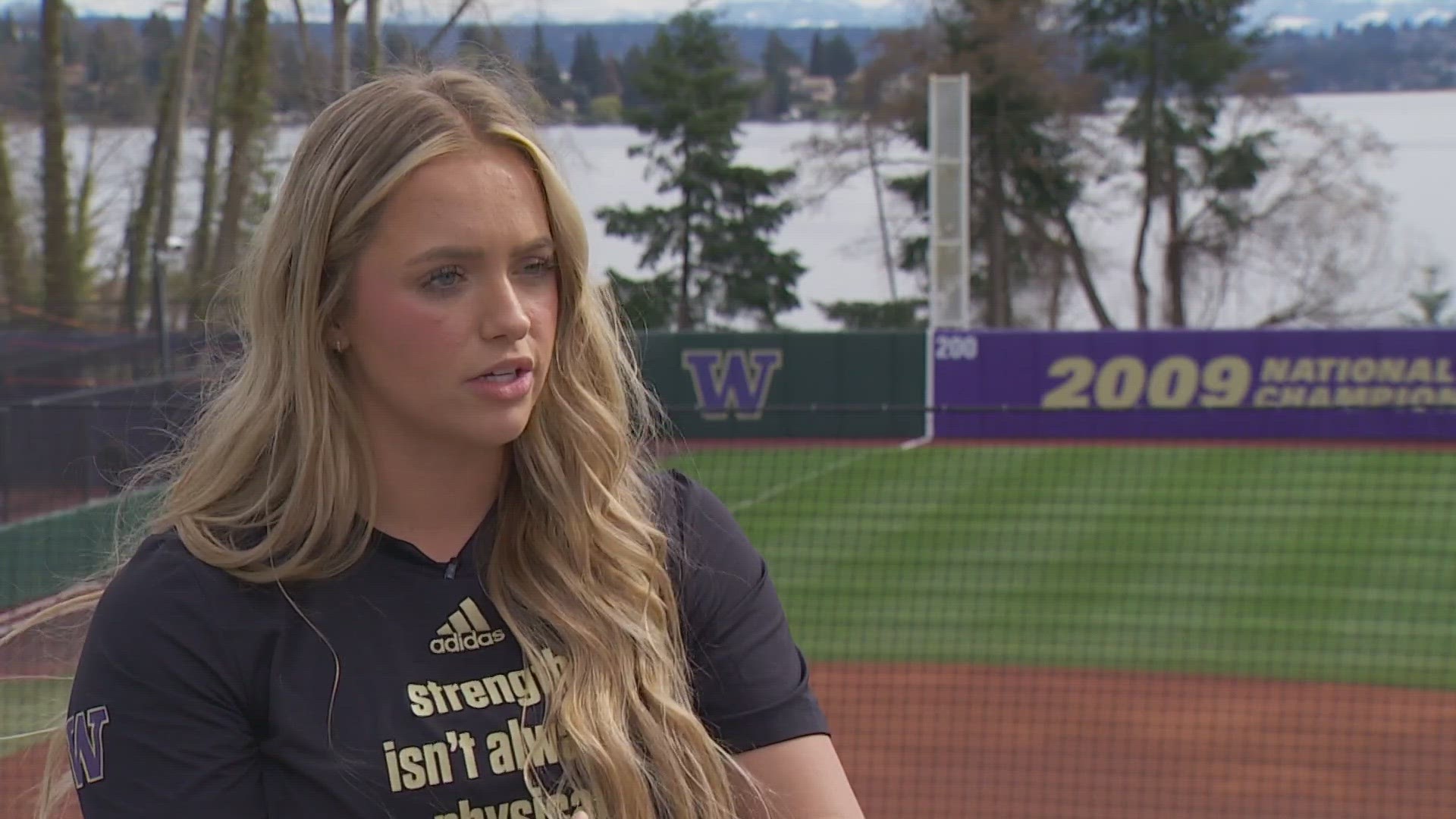SEATTLE — The month of May is mental awareness month and University of Washington softball star Brooke Nelson wants everyone to know that it's OK not to be OK.
At Bonney Lake, Brooke Nelson was the Gatorade Player of the Year. She won a state title and was one of the top recruits in the country.
When she got to the University of Washington, Brooke was no longer the top player on the team.
"Freshman year was probably the hardest, just the transition because, you know, prior to college, you're the best of the best. But then, you know, especially at a power five university, the best of the best are now on one team. Being the youngest you're trying to learn everything all at once, things I didn't know, and that was kind of when I started to battle depression, anxiety, like all of those thoughts," said Nelson.
Her mental toughness was being tested, and then it got worse when the COVID-19 pandemic cancelled the season.
"Your identity has been so tied to a sport for so long and then when that sport goes away, you don't really know what to do. We didn't really have anything to fall back on, I think, and so that's kind of when the whole mental side of the game really kind of came to the forefront of it all," said Nelson.
Brooke was battling loneliness, self-doubt, depression, and anxiety. She had hit a wall and started having suicidal thoughts.
"At least on my part there was no action, I mean, there was always a thought of like, what if I wasn't here," said Nelson.
Brooke didn't want to admit she was struggling.
"It's a tough thing in sports because you never want to show your weakness, but I think that's especially important to have this conversation as mental health has kind of come to the forefront. Like it's OK. It's not a weakness. Like, there's strength in vulnerability," said Nelson.
Brooke was encouraged by a teammate to seek therapy.
"I think the best thing that could have ever happened was having that conversation with a senior (on the team) and being able to access mental health resources and talk to a licensed psychologist, to just talk through all these emotions," said Nelson.
Being vulnerable, meeting with a therapist, having conversations about mental health, it all helped Brooke. But she's also found comfort from a four-legged friend.
"Bailey is my two-and-a-half-year-old chocolate lab. We adopted her this summer from the Seattle Humane Society. And so, she's technically my ESA, my registered emotional support animal, but she's been super helpful for me on the balance piece," said Nelson.
Bailey has certainly been a girl's best friend.
"She probably doesn't know how much she means to me," said Nelson.
On the mound, Brooke said she's never felt better, physically and emotionally. Off the field she's on a mission to help raise awareness on mental health.
"I think what's so hard for a lot of athletes, they think that it's weak to have these feelings and to have these conversations, but there's so much strength in being able to talk about what's going on versus kind of letting it get bottled up - which it's so easy to do in college athletics. One, it's OK, to not be OK. But I would also say, there's so many people around you that care about you that love you, and so, just reach out. Like, it's OK to have these people to reach out to and kind of say, hey, I'm struggling," said Nelson.
If you or someone you know is in crisis, call the National Suicide Prevention Lifeline at 800-273-8255, text HOME to 741741 or visit Vibrant Emotional Health’s Safe Space for digital resources.

